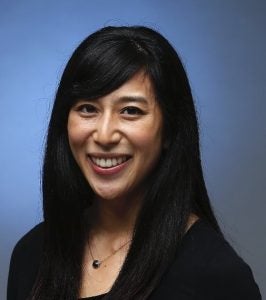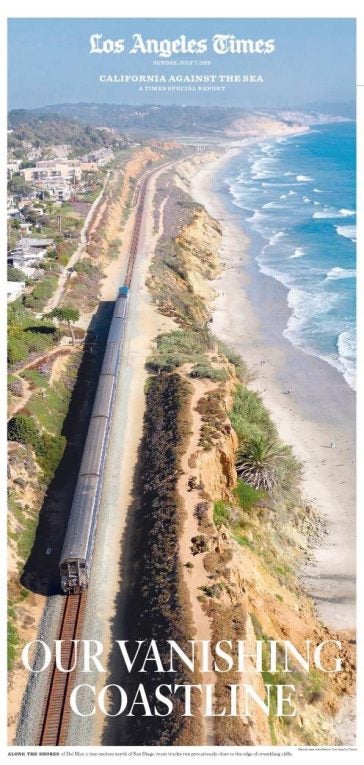 Rosanna Xia’s beat stretches 1,200 miles along California’s expansive coastline.
Rosanna Xia’s beat stretches 1,200 miles along California’s expansive coastline.
“The coast is just so fascinating,” says Xia, an alumna of Metcalf Institute’s 2018 Annual Science Immersion Workshop for Journalists and a coastal reporter on the Los Angeles Times’ environment team.
Xia has covered everything from earthquakes and California’s drought to business and higher education during her nine-years at the LA Times. Her series on a historic outbreak of measles in the state led to the passage of new legislation aimed at closing an exemption loophole that allowed a decline in the number of people getting preventative vaccines.
Her editors had just assigned Xia to cover the California coast, in 2017, when she applied to Metcalf’s Annual Workshop. “I’m excited to hit the ground running on my new beat and hope to join Metcalf Institute to build my foundational knowledge…” she wrote in her application to Metcalf.
“The timing was perfect,” reflects Xia on her fellowship experience. “Metcalf really helped me understand how to embrace scientific uncertainty, especially on topics like climate change.” Xia also valued the opportunity to network and learn from other journalists, many of whom she still stays in contact with. “We had an awesome class that year.”
Not long after Xia returned to California and her new beat, she dove into sea level rise, the “biggest looming issue” confronting the West coast and “a threat weighing on every community I visited,” she says.

One of her projects, which ran as a special section in the LA Times in July 2019, took a comprehensive look at all aspects of sea level rise, including the science, the cost of action and inaction, impacts on homeowners and business, and debates over how policymakers should respond. “Wildfire and drought dominate the climate change debates in the state. Yet this less-talked about reality has California cornered,” she wrote in the article. “The state has both no time and too much time to act, spiraling into paralyzing battles over the why, who, when and how.”
“Everyone feels entitled to the coastline, whether you’re an environmentalist, beach goer, fisherman, scientist, oil company, or coastal homeowner, and all of these interests are often in conflict with each other,” says Xia referring to her coastal beat. “The stories are never ending.”
Xia has also written about endangered species deep beneath the sea, ocean pollution and the ongoing legal battles over public access to California beaches. “I’ve been following many of these high profile cases that really get to the core argument, this issue of who deserves to enjoy this natural resource,” she says.
A graduate of Tufts University with a degree in quantitative economics, Xia gave the financial industry a try before stumbling into journalism. She loves what reporting allows her to do: “ask questions, translate numbers into plain English, tell stories that teach people something new about the world.”
As for the future, Xia will continue to cover policies and the search for solutions around sea level rise adaptation and climate resilience. She is also plunging deeper into her coverage of the ocean including a recent story on the impact of an unprecedented heat wave on the Pacific Ocean’s ecosystem. “The ocean really is the unsung hero of climate change that absorbs so much of our heat, so much of our carbon emissions,” she says. “We have to think about how much the ocean is acidifying and how much marine heat waves are affecting ecosystems and marine species that rely on this resource.”
Xia will use many of the science skills gained during her Metcalf fellowship as she approaches these stories, and she offers this advice to other journalists. “It’s really important at this moment in time to know that you don’t have to be a climate reporter or environment reporter to benefit from Metcalf’s workshop,” she says. “Climate change impacts so many aspects of our lives. It’s a public health story,a transportation story, an infrastructure story, and a community story.”
Read More Alumni Profiles
